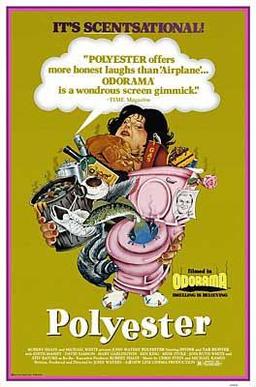 an American motion picture director, producer, screenwriter, cinematographer, editor, actor and photographer.
an American motion picture director, producer, screenwriter, cinematographer, editor, actor and photographer.primarily known for writing/directing a series of successful low-budget sexploitation films that featured campy humor and satire.
Sexploitation films - subgenre of exploitation films, independently produced, low budget, associated with the 1960s, generally exhibitied in urban grindhouse theatres.
Russ Meyer often mocked moral stereotypes and conservative American values. The majority of his films feature a narrator who gives the audience a "moral roadmap" of what they are watching.
John Waters is forever subverting stereotypes and poking fun at the Catholic faith. He challenges the ideology of a housewife through most of his films. Many of his films feature campy humour also.



